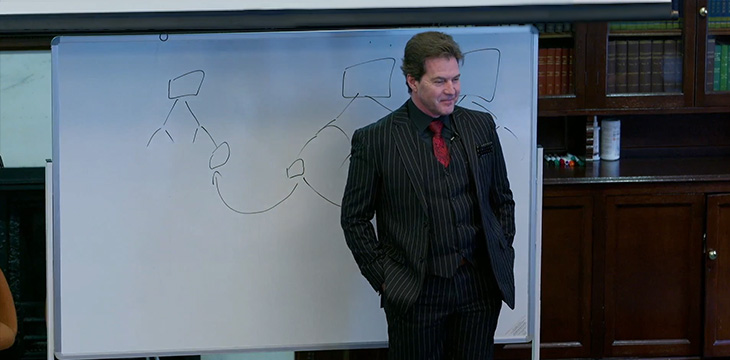|
Getting your Trinity Audio player ready...
|
Dr. Craig Wright conducted the first “The Bitcoin Masterclasses” in January 2023. The first session of the second day was a recap of the first day: covering the fundamental differences between privacy, confidentiality, and anonymity. Dr. Wright also asked the audience about the content discussed on day one.
Questions about day one content
Q. Will the vision outlined yesterday, where people can share data between platforms, only come into being if governments legislate for it?
“When did governments ever in human history actually instigate anything first?” Dr. Wright asks. He explains that corporations ran Rome, and Knights ran the corporations—it was completely capitalist and corporate. It took a lot of work to manage this from Rome, given the lack of technology at the time, leading to a hierarchy of corporations running corporations, along with the inevitable problems that brought.
So, will the corporations bring changes? Yes, but not the existing ones like Twitter. They wish to maintain their monopolies, and they don’t like competition. New ones will challenge them and bring about change, and governments will legislate and regulate.
Q. How can the deletion of data talked about yesterday be implemented practically?
Dr. Wright says he won’t get into detail on this because he has pending patents related to it. He assured the audience it could be done, but he won’t elaborate yet.
Q. Yesterday, we talked about the tokenization of everything. If we assume BSV has a price of £1 million per coin, does that make it viable?
Dr. Wright begins by saying he thinks the price of a single BSV will be around £10,000-£20,000. At £10,000 per coin, he says the tokenization of everything is viable, and payment channels plus everything else will be possible, too. He sees a world where individual tokens are fractionalized and used in various applications, and overlay networks develop, etc.
Q. When you were referring yesterday to memberships, were you referring to DAOs?
“A DAO is just a partnership by another name,” Dr. Wright replies, saying nothing new has been created. He explains that, legally, a partnership is just a group of individuals seeking profit with a common endeavor. He explains that anyone who owns tokens is part of a partnership with no limited liability clause, leaving them open to being sued. Dr. Wright much prefers the structure of corporations as only the capital of investors is at risk.
Elaborating on further problems with idealistic concepts like DAOs and blockchain without government, Dr. Wright poses a challenging question: if two separate housing ownership records appear on two different blockchains, which one will we consider legitimate? This is why we need governments, laws, identity linked to records, and what Dr. Wright calls “the real world.”
Furthermore, DAOs are not in any way democratic. Whereas in a democracy, a person gets one vote whether they are worth $1 or billions, in a DAO, the richest token holders can outvote everyone else. There’s no way minority holders can do anything as they can when they hold shares of corporations.
“Who sets the rules?” Dr. Wright asks for DAOs and proof-of-stake blockchains like Ethereum, aiming at Vitalik Buterin. He points out that Buterin has almost total control of that network.
Q. Isn’t it true that the best technology does not always win in history?
Dr. Wright challenges this concept and the example of Polaroid given by the questioner. He says the economics counts most; in Polaroid’s case, users didn’t value it enough to pay the price.
The economics of Bitcoin is superior to any other blockchain. Dr. Wright plans to take things to millions of transactions per second at thousands of a cent. “Until then, nobody in the corporate world cares. Once we get to that point, they will,” he says. He points to the vast savings companies can make managing things like shareholder records.
Speaking of shareholder records, Dr. Wright points to the ability of Bitcoin to help corporations verify the identities of the shareholders for fractions of a cent. Not only will this save them vast quantities of money, but they will be obliged to use such a system once it can be demonstrated that the technology works and it reduces costs.
Watch: The Blockchain Masterclasses with Craig Wright Day 2 – Private Identity, Identity Proofs, Topic Reviews

 03-05-2026
03-05-2026 




